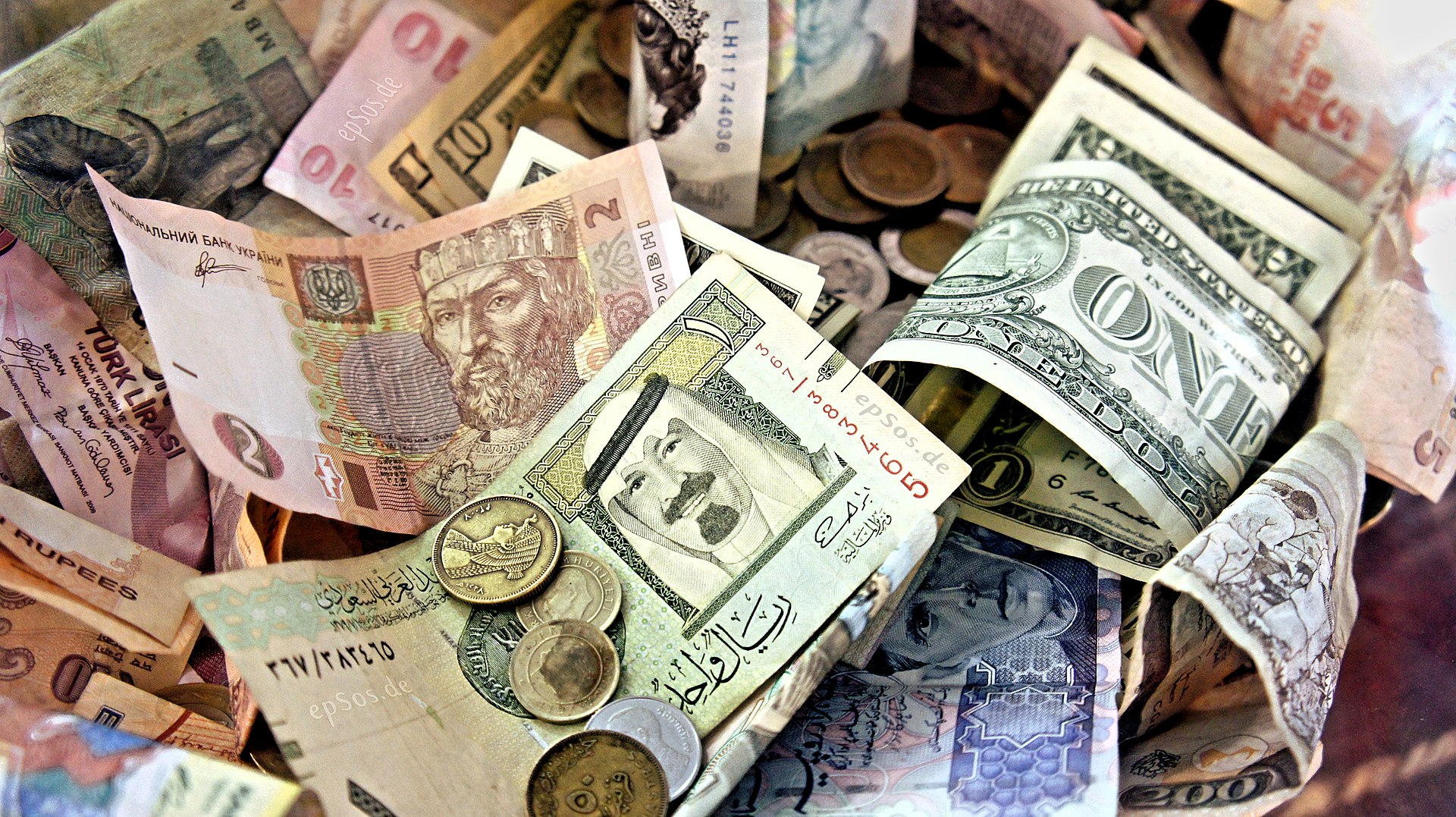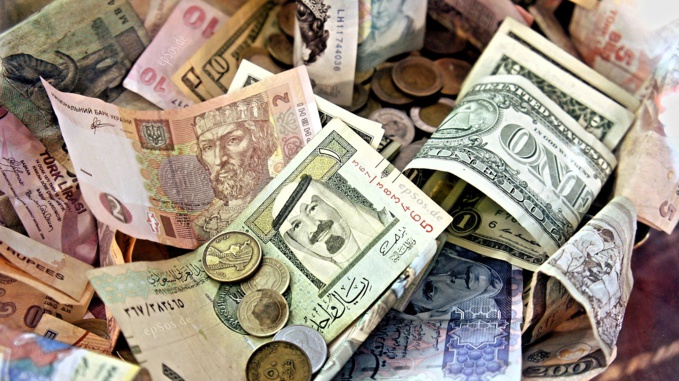On Wednesday, October 17, the Danish Saxo Bank issued another macro forecast for the fourth quarter of this year. In July, analysts of the bank issued a threatening forecast that aggravation of trade contradictions and instability in the currency markets in the third quarter could threaten the economy with the most dangerous period in the last 30 years.
Although the apocalypse did not happen, several collapses have already occurred in the currency markets of some developing countries (Turkey, Argentina, South Africa) as well as in the stock markets of the USA and Asia.
“Now we are obviously at a crossroads in many areas: globalization, geopolitics and economics,” said Steen Jakobsen, chief economist at Saxo Bank. “In the next quarter, we will either see a decrease in volatility using the less aggressive behavior of the Fed, more active easing of credit and financial policies in China and the EU budget compromise; or further escalation of tensions in the already mentioned issues. I would not risk definitely putting it against the second scenario, but at the same time I continue to believe that we are only a few months away from the beginning of a new cycle of easing of credit and financial policy. ”
“Nothing will put an end to a strong dollar except a strong dollar” - this is the title of the section of the Saxo Bank report on the forecast of the rate of the North American currency. It says that raising the Fed rates, making dollar borrowing more expensive and stimulating growth in the rate and yield on bonds, may well have a negative effect on the dollar liquidity, especially in developing countries. And this largely depends on the policy of China regarding the Yuan.
In any case, according to Christopher Dembik, head of Saxo Bank’s macroeconomic analysis, if US rates and the dollar continue to rise, this will hit the US markets first and the entire US economy as a whole. All of this will have a devastating effect on the global economy, especially on emerging markets, which more than anyone else have been tempted to borrow money in dollars when the Fed kept the zero rate. “At the moment, we believe that the US economy has reached its peak thanks to a powerful expansionist cocktail of unfunded tax breaks, repatriation of capital and budget spending. All this stimulated economic growth in the United States, but the effect of these one-time measures will dry up by the end of the year,” analysts say.
Commodity prices will continue to be influenced by decisions taken in Washington over the past six months. Donald Trump's trade war with China and sanctions against Iran will continue to set the tone until the end of this year. Speaking of energy prices, Saxo Bank notes that as "the normal market mechanisms of demand — supply has recently been increasingly interfered by politics, we refrain from forecasting the price of oil at the end of this year." Ole Hansen, head of the strategy for commodity markets, notes that "the risks of a trade war and the rise in oil prices may complicate the positive dynamics for the global economy." In his opinion, the combination of rising energy prices and a strong dollar will turn into an “extra tax” on fuel for many consumers from developing countries.
Speaking about the situation in the euro zone and the euro rate, experts believe that the situation around Italy will continue to have a great influence. Recall, populists who joined the government began to oppose the European Commission's policy of curbing budget expenditures and strict budget discipline. The possible resumption of the debt crisis in the EU, this time because of Italy, has already led to a decline in the euro in 2018. Althea Spinozzi, a bond market specialist, notes that “in the fourth quarter we will see how the risks associated with the opposition of the Italian government and the European Commission affect the government bonds of European countries. However, we are not inclined to expect "Italexit". The Italian economy is very much dependent on the eurozone economy, and the presence of a single European currency in this country significantly complicates the prospects for a possible exit from the EU. ”
In general, speaking of the euro-dollar pair, analysts at Saxo Bank note that "higher rates in the United States will slow down the growth of the American economy." According to the bank, the dollar may reach its local peak already in this quarter and then begin to move in the opposite direction, “since the market believes that the Fed has already gone too far.”
source: saxobank.com
Although the apocalypse did not happen, several collapses have already occurred in the currency markets of some developing countries (Turkey, Argentina, South Africa) as well as in the stock markets of the USA and Asia.
“Now we are obviously at a crossroads in many areas: globalization, geopolitics and economics,” said Steen Jakobsen, chief economist at Saxo Bank. “In the next quarter, we will either see a decrease in volatility using the less aggressive behavior of the Fed, more active easing of credit and financial policies in China and the EU budget compromise; or further escalation of tensions in the already mentioned issues. I would not risk definitely putting it against the second scenario, but at the same time I continue to believe that we are only a few months away from the beginning of a new cycle of easing of credit and financial policy. ”
“Nothing will put an end to a strong dollar except a strong dollar” - this is the title of the section of the Saxo Bank report on the forecast of the rate of the North American currency. It says that raising the Fed rates, making dollar borrowing more expensive and stimulating growth in the rate and yield on bonds, may well have a negative effect on the dollar liquidity, especially in developing countries. And this largely depends on the policy of China regarding the Yuan.
In any case, according to Christopher Dembik, head of Saxo Bank’s macroeconomic analysis, if US rates and the dollar continue to rise, this will hit the US markets first and the entire US economy as a whole. All of this will have a devastating effect on the global economy, especially on emerging markets, which more than anyone else have been tempted to borrow money in dollars when the Fed kept the zero rate. “At the moment, we believe that the US economy has reached its peak thanks to a powerful expansionist cocktail of unfunded tax breaks, repatriation of capital and budget spending. All this stimulated economic growth in the United States, but the effect of these one-time measures will dry up by the end of the year,” analysts say.
Commodity prices will continue to be influenced by decisions taken in Washington over the past six months. Donald Trump's trade war with China and sanctions against Iran will continue to set the tone until the end of this year. Speaking of energy prices, Saxo Bank notes that as "the normal market mechanisms of demand — supply has recently been increasingly interfered by politics, we refrain from forecasting the price of oil at the end of this year." Ole Hansen, head of the strategy for commodity markets, notes that "the risks of a trade war and the rise in oil prices may complicate the positive dynamics for the global economy." In his opinion, the combination of rising energy prices and a strong dollar will turn into an “extra tax” on fuel for many consumers from developing countries.
Speaking about the situation in the euro zone and the euro rate, experts believe that the situation around Italy will continue to have a great influence. Recall, populists who joined the government began to oppose the European Commission's policy of curbing budget expenditures and strict budget discipline. The possible resumption of the debt crisis in the EU, this time because of Italy, has already led to a decline in the euro in 2018. Althea Spinozzi, a bond market specialist, notes that “in the fourth quarter we will see how the risks associated with the opposition of the Italian government and the European Commission affect the government bonds of European countries. However, we are not inclined to expect "Italexit". The Italian economy is very much dependent on the eurozone economy, and the presence of a single European currency in this country significantly complicates the prospects for a possible exit from the EU. ”
In general, speaking of the euro-dollar pair, analysts at Saxo Bank note that "higher rates in the United States will slow down the growth of the American economy." According to the bank, the dollar may reach its local peak already in this quarter and then begin to move in the opposite direction, “since the market believes that the Fed has already gone too far.”
source: saxobank.com



















